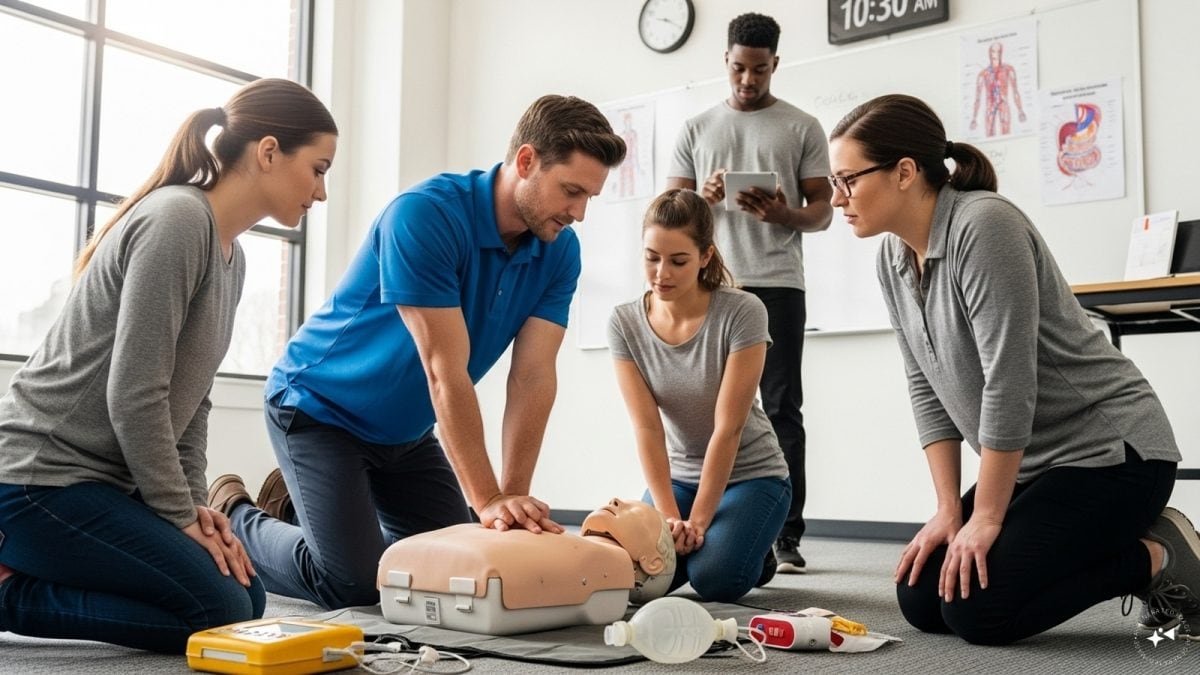Last Updated:
Doctors stress that the initial minutes are critical when assisting someone in cardiac arrest. Quick and decisive action can mean the difference between survival and tragedy.

Start chest compressions immediately if the person is unresponsive.
Cardiac arrest strikes suddenly and without warning. In those moments, panic often takes over, but hesitation can cost a life. Medical experts stress that the first few minutes are the most crucial. Swift, confident action can mean the difference between survival and tragedy.
Start With Chest Compressions
Recommended Stories
“When a person is unresponsive and not breathing, the first priority is to start chest compressions. Press firmly on the centre of the chest, keeping a rhythm that is consistent with the beat of a very fast song,” explains Dr. Gautam Rege, Consultant – Interventional Cardiologist, Jupiter Hospitals, Thane.
Even if you feel untrained, don’t let that stop you. “Sometimes people hesitate because they feel they are not trained, but even imperfect CPR is far better than doing nothing at all,” Dr. Rege adds. The key is to keep blood circulating until emergency medical help arrives.
Call for Help and Look for an AED
Alongside compressions, calling emergency services is vital. “If one collapses from cardiac arrest, every second counts. The first step is to immediately check whether the individual is breathing or responding. If not, call for emergency assistance and begin CPR,” says Dr. Parin Sangoi, Consultant – Interventional Cardiologist, Wockhardt Hospitals, Mumbai Central.
If another person is present, one should continue compressions while the other retrieves an automated external defibrillator (AED), if available. “These portable devices are designed to analyse heart rhythm and deliver a shock only if required, so there is no risk of misusing them,” Dr. Rege notes.
Dr. Sangoi echoes this: “If an AED is available, it will walk you through delivering a shock, which can resuscitate the heart. Such devices are usually installed in public places and are safe to use by anyone.”
Don’t Wait for Perfection, Act Immediately
The experts emphasise one thing repeatedly: action is better than hesitation. “Don’t stress too much about getting it right; even rudimentary compressions can maintain oxygen flow to the brain and heart until trained personnel arrive,” says Dr. Sangoi.
Dr. Rege reinforces the importance of persistence: “CPR should be continued till either the patient starts responding or expert medical help arrives. Quick, confident action is often the deciding factor in survival.”
Cardiac arrest is frightening, but knowing what to do and acting immediately saves lives. Firm chest compressions, calling for help, and using an AED when available can keep a person alive until professionals take over. In a crisis, every second matters, and doing something is always better than doing nothing.
Delhi, India, India
September 19, 2025, 14:09 IST
Loading comments…
Go to Source
Author: News18



